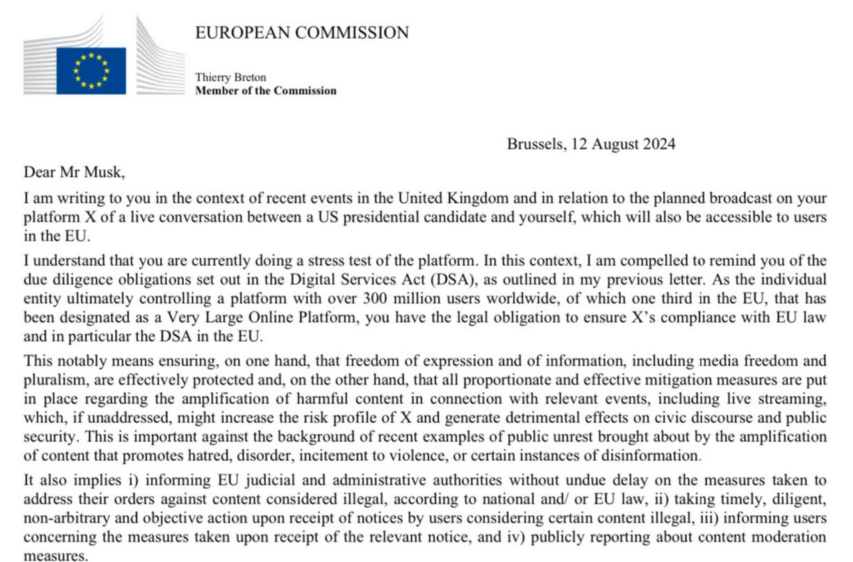World War Two
Published 24 Aug 2024The Soviet Red Army completes its conquest of Manchuria and the northern half of Korea this week, although Japanese Emperor Hirohito announced Japan’s surrender already last week. Behind the scenes are machinations going on by Josef Stalin and Mao Zedong that they hope will lead to a Communist China in future. Vietnam might well be going communist right now, though, for the August revolution continues with the Viet Minh taking ever more control.
00:00 Intro
00:34 Recap
00:49 Chiang, Mao, and Stalin
07:32 Soviet victory in Manchuria
09:08 Viet Minh taking control
11:45 Summary
12:31 Conclusion
13:20 Julius Poole memorial
(more…)
August 25, 2024
Soviet Victory in Manchuria – WW2 – Week 313 – August 24, 1945
Woke libraries
Frank Furedi on the already well-advanced plan to turn public libraries into safe spaces for progressive indoctrination:
In recent times, the Library has become the target of what I characterise in my new book, as The War Against The Past. The current project of dispossessing Western society of its historical legacy has gained a powerful influence over the institutions of culture. That is why the Library – a repository of the knowledge and wisdom gained through the past – has become the target of cultural vandalism.
The promoters of the culture war in the Library often justify their action on the ground that their target is not so much the past – but the “racist past”. This is the argument used by the Government backed supporters of a campaign in Wales who wish to reorganise libraries along the lines of anti-racist principles. These racially obsessed cultural warriors insist that Libraries throughout Wales must embrace the goal of becoming anti-racists if the devolved Labour government’s pledge to “eradicate” systemic racism by 2030 would be realised. To ensure that libraries and the “racist” buildings holding their collection are cleansed of the sin of “whiteness”, a £130,000 project designed to indoctrinate local librarians in “critical whiteness studies” has been devised.
The project of racial indoctrination pursued in Wales warns that staff training sessions will be necessary to ensure that libraries align with anti-racist principles. However, it insists that such training sessions should not take place in buildings with a “racist past”. From the standpoint of the authors of the document proposing “critical whiteness studies”, many buildings housing libraries must be avoided because they serve as symbols of racism. Do they presume that the buildings in question can contaminate members of the public with the racist plague? Or are they merely interested in tearing down the walls of racist buildings in order to rebuild them as temples to the doctrine of decolonization?
In a world, where the racialisation of every dimension of life has acquired its own imperative, it was only a matter of time before buildings became demonised as racist. There is now a veritable literature authored by academic racial entrepreneurs who insist that buildings can be racist. One enthusiastic social scientist supporting this thesis offers numerous “examples of buildings being racist”. The racialisation of building and the material properties used in their construction has acquired the character of a veritable fetish. “Concrete, steel and glass buildings are ‘racist'” is the title of one contribution on this subject.
The Welsh Government appears to be consumed by the quest of ridding its nations of racist buildings. As far back as 2021 it published an audit of all such buildings as well as, schools, streets, statues and pubs that it regarded as the product of Wales’ racist past. In effect almost any building, street name or pub whose name was linked with a historical figure was by definition racist. Gone are the days when a pub is allowed to call itself Admiral Nelson or the Duke of Wellington.
The policy of renaming a building, street or a statue is bad enough. What is far worse is when a library is forced to subordinate its book collection to the imperative of racialization. In the name of ridding the book shelves of their “whiteness” and “racist past”, a library becomes a target of officially sanctioned cultural vandalism.
Throughout the Anglosphere. Cultural vandalism is justified on the ground of settling scores with colonialism, racism or white supremacy. For example, school libraries in Australia have removed “outdated and offensive books on colonialism” from their collection[v]. The purge of a school library in Melbourne was guided by Dr Al Fricker, a Dja Dja Wurrung man and expert in Indigenous education with Deakin University. In the course of auditing all 7000 titles on its library shelves. Fricker showed little nostalgia towards the collection. He stated that some of the books removed were almost 50-year-old and were “simply gathering dust anyway”. He stated that “we wouldn’t accept science books being that old in the library, so why do we accept other non-fiction books to be that old, because nothing is static”.
There is something truly disturbing about the idea that a library ought to rid itself of old non-fiction books. In my discipline of sociology that would mean ridding libraries of the 19th century pioneers of the field. In effect the call to reject old non-fiction books constitutes the annihilation of the intellectual legacy of the social sciences and the humanities.
After Wittmann’s Tiger Tank Rampage – The Fight back at Villers-Bocage
The Tank Museum
Published May 10, 2024 16 productsMichael Wittmann’s rampage at Villers-Bocage was just the start of a fight that was far from the great victory the Germans would claim it to be. At 0930 on 13 June 1944, in the chaos that followed Wittmann’s fortuitous lunge into the British column, the men of the 4th County of London Yeomanry lick their wounds and set up their defences. They’ve been given the order to hold the Villers-Bocage at all costs — and will soon be fighting for their lives against a superior German force.
By the end of the day, a young Lt. Bill Cotton will have earned the Military Cross and a promotion to Captain. His Sergeant will earn a Military Medal and his Corporal a Distinguished Conduct Medal … In the hype surrounding the career of Michal Wittmann, has the role of Bill Cotton and his troop been overlooked? Was he the real hero of Villers-Bocage?
Watch our video on Wittmann’s Tiger Tank Rampage:
• Wittmann’s Tiger Tank Rampage | Ville…00:00 | Introduction
00:56 | Aftermath of Wittmann’s Rampage
01:48 | Reconnaissance and Reinforcements
03:24 | Lt. Bill Cotton
05:26 | Bayerlein Strikes
07:05 | Three Tigers Taken Out
08:18 | The Heroes of Villers-Bocage
10:42 | Bramall’s Ingenuity
14:48 | The End of the Assault
16:16 | ConclusionThis video features footage courtesy of British Pathe.
#tankmuseum #tankactions #villersbocage
QotD: P.G. Wodehouse’s unique way to get letters delivered
In previous columns […] I wrote about Homage to PG Wodehouse, a 1973 tribute edited by Thelma Cazalet-Keir, sister-in-law of Wodehouse’s beloved stepdaughter Leonora. My final extracts begin with an account by the American Guy Bolton (1884-1979), who collaborated with the Master on no fewer than 21 musical comedies for the stage and became his lifelong friend. In one of my favourite anecdotes, he describes how he called on Wodehouse in London in the mid-1920s.
“He was living in bachelor quarters in a tall, old-fashioned building in Queen’s Gate. His flat was on the fifth floor. There was no lift. I was travel tired and I toiled up the long staircase, pausing on the landings to pant. I found his door ajar and, entering, I found him writing a letter. He greeted me with a cheery ‘Hurrah, you’re here!’ and added, ‘Just a tick and I’ll get this letter off.’
“He shoved the letter in an envelope, stuck a stamp on it, then went over to the half-open window and tossed it out. ‘What on earth?’ I asked. ‘Has the joy of seeing me brought on some sort of mental lapse? That was your letter you just threw out of the window.’ ‘I know that. I can’t be bothered to go toiling down five flights every time I write a letter.’ ‘You depend on someone picking it up and posting it for you?’ ‘Isn’t that what you would do if you found a letter stamped and addressed lying on the pavement? All I can say is it works.’ ‘Well I wish you’d write me a letter while I’m here in London. I’d like to show it round in America – a bit of a score for good old England’.”
Bolton goes on: “It was the second day after moving into a fourth-floor flat in South Audley Street when my doorbell rang and I opened it to a rather stout individual somewhat out of breath. ‘Are you Mr Bolton? I have a letter for you.’ The envelope was in Plum’s handwriting.
“He said he was a taxi driver but refused a tip, accepting instead a bottle of Guinness. While he was drinking it, I phoned Plum. ‘I have your letter,’ I said. ‘What?’ said Plum in a slightly awed voice. ‘I only threw it out of the window 20 minutes ago.’ ‘You were right,’ I said. ‘It’s by far the quickest way to send a letter to a friend in London.’ ‘Yes, indeed. The GPO had better look to their laurels and keep an eye on their laburnums’.”
Of his friend, Bolton says: “He has one quality that is rare in our age. It is innocence. It carries with it a trusting belief in the goodness of heart of his fellow men. Suspicion and distrust have no place in his nature. The characters in his books share in it – even his villains are likely to succumb before a finger shaken by one of those bright-eyed, no-nonsense Wodehouse heroines.”
Alan Ashworth, “That reminds me: A final homage to Wodehouse”, The Conservative Woman, 2024-05-21.
August 24, 2024
How the CIA eventually got Patrice Lumumba assassinated
The CIA decided early on that the first democratically elected Prime Minister of the Democratic Republic of the Congo was being controlled by their Soviet opponents and needed to be killed:

Patrice Émery Lumumba, first Prime Minister of the Democratic Republic of the Congo on 27 December 1960.
Unknown photographer
I’m still making my way through David Talbot’s 2015 book The Devil’s Chessboard, a history that explores the life of CIA Director Allen Dulles and the sordid history of the agency.
There are too many grisly anecdotes to recount showing how the CIA was involved in unlawful and unethical acts all over the world, but one that sticks out was the book’s treatment of Patrice Lumumba, an African nationalist who served as the first prime minister of the Democratic Republic of the Congo before he was killed in 1961 — with a shove from the CIA.
Lumumba was a thorn in the side of the agency, and his left-leaning politics led CIA officials to believe he was a stooge for the USSR (he wasn’t, as the CIA later admitted). So it was determined that Lumumba had to go—one way or the other.
First, a coup was arranged to have the democratically-elected Lumumba, who was demanding full independence for the Congolese people, removed from office and placed under arrest. To this end, the CIA tapped a young military colonel named Joseph Mobutu, who was friendly with Belgian intelligence (the Congo had long been under Belgian colonial rule) and would go on to rule for decades until he was ousted himself in a 1997 rebellion.
Then the CIA began exploring options to eliminate the popular Lumumba. Being the CIA, a single method was not chosen. Instead, various methods were explored to take out the Congolese leader and multiple people were tapped, including a pair of hitmen the agency had hired from Europe’s criminal underworld.
Talbot explains how the CIA equipped one of these cutthroats with a tube of poisoned toothpaste. Why toothpaste? Because one Dr. Ewen Cameron, at the behest of the CIA, had analyzed Lumumba and noted his immaculate white teeth. This led him to suggest a simple way to eliminate the troublesome leader: poison his dental products.
“In the end, the CIA did not go through with the toothpaste plot,” writes Talbot, “apparently deciding that poisoning a popular leader while he was under UN protective custody in his own house would be too flagrant a deed—one that, if traced back to the agency, would lead to unpleasant international repercussions.”
Instead, days before the inauguration of John F. Kennedy, the CIA arranged to have Lumumba chartered off on a plane to Katanga, a province that had broken from the Congo and was ruled by factions hostile to Lumumba.
This all but sealed Lumumba’s fate, CIA officials later testified.
“I think there was a general assumption, once we learned that he had been sent to Katanga, that his goose was cooked,” CIA station chief James Devlin, who helped orchestrate Lumumba’s fall, quipped to the Church Committee years later.
Devlin was right. During his flight to Katanga, Lumumba was beaten to a pulp. Then he was driven by jeep to a farm and beaten by members of rival political factions. The men, Talbot makes clear, had clear ties to US and Belgian intelligence.
“Eventually he was killed, not by our poisons, but beaten to death, apparently by men who had agency cryptonyms and received agency salaries,” said CIA agent John Stockwell, who was sent to the Congo in the aftermath of the assassination.
The Soviets managed a propaganda win out of the CIA’s clumsy wet work, renaming the Peoples’ Friendship University of the USSR (primarily used for training non-Soviet citizens from “fraternal socialist” and “unaligned” nations in Marxist-Leninist views) to the Patrice Lumumba Peoples’ Friendship University.
Hitler’s People by Richard J. Evans
In The Critic, Daniel Johnson reviews Richard Evans’ latest book on the history of Hitler’s Germany, Hitler’s People: The Faces of the Third Reich:
History records nothing more vile than Hitler and his henchmen. At the height of his power in 1942, Heinrich Himmler boasted that “the Führer has laid this very serious command [extermination of the Jews in occupied eastern Europe] upon my shoulders. No one can take it away from me.” By the end of the Third Reich, Hermann Göring had become a “voluptuary”, wearing lipstick and dressing in a toga, accompanied by a suitcase containing most of the world’s supply of the drug paracodeine. Joseph Goebbels, meanwhile, devoted his brief reign as Hitler’s successor to poisoning his six children.
The word “Nazi” has become synonymous with evil. Inevitably, therefore, it has also lost much of its original meaning — a case of Hegel’s “night in which all cows are black”. There is a danger that new generations will no longer know what made the Nazis and their crimes uniquely heinous.
Professor Sir Richard Evans has gathered a representative sample of “Hitler’s people”, ranging from the monstrous to the grotesque, into a single volume. It’s not a work of original research but a collective portrait of “the faces of the Third Reich”. Their unifying factor is the Führerprinzip — their unquestioning obedience to and adulation for Adolf Hitler.
Hero-worship in this, its most sinister form, is still with us. From Narendra Modi to Donald Trump, from Marine Le Pen to Jean-Luc Mélenchon, democracies are still menaced by demagogues. If we are honest, we have all felt the gravitational attraction of “charisma” — a secularised theological concept coined by Max Weber to denote the political authority exerted by an extraordinary individual. Evil often elevates the ordinary to the extraordinary.
Charisma in this sense is contemporaneous with the emergence of Hitler. His cult of charismatic leadership is indistinguishable from the ideology of National Socialism. Cults of this kind had already been prefigured in his day by those of Mussolini, Lenin and Stalin. But the case of Hitler, who cultivated the phenomenon in its most extreme form, remains the paradigm. Vladimir Putin, Xi Jinping and other contemporary despots are still in his debt.
Nazi Germany was indeed run by legions of little Hitlers, each demanding obeisance whilst lording it over their frequently competing or overlapping jurisdictions. The Third Reich was, in this sense alone, a diabolical reincarnation of the First, the Holy Roman Empire, with its patchwork of feudal domains. No medieval monarch, though, had the technological means to inflict such mayhem and misery upon humanity.
Operation Downfall – the planned invasion of Japan in 1946
Wes O’Donnell talks about the thankfully never-launched invasion of the Japanese home islands at the end of the Second World War:
History often hinges on the narrowest of margins.
Entire nations can rise or fall based on decisions made under the pressures of the moment.
But what if those decisions had gone the other way?
What if Archduke Franz Ferdinand had survived the assassination attempt in 1914?
What if John F. Kennedy had lived to complete a second term?
And most intriguingly, what if the United States had not dropped atomic bombs on Hiroshima and Nagasaki in August 1945?
The world would have witnessed Operation Downfall, the Allied invasion of Japan — an operation that, by all accounts, would have been the bloodiest amphibious assault in human history.
Operation Downfall was the codename for the proposed Allied plan for the invasion of Japan near the end of World War II.
The planned operation was abandoned when Japan surrendered following the atomic bombings of Hiroshima and Nagasaki and the Soviet declaration of war.
The operation had two parts: Operations Olympic and Coronet.
Set to begin in November 1945, Operation Olympic was intended to capture the southern third of the southernmost main Japanese island, Kyūshū, with the recently captured island of Okinawa to be used as a staging area.
Later, in the spring of 1946, Operation Coronet was the planned invasion of the Kantō Plain, near Tokyo, on the Japanese island of Honshu.
Airbases on Kyūshū captured in Operation Olympic would allow land-based air support for Operation Coronet.
The most troubling aspect of Downfall may have been the logistical problems facing military planners.
By 1945, there simply were not enough shipping, service troops, or engineers present to shorten the turnaround time for ships, connect the scattered installations across the Pacific, or build facilities like air bases, ports, and troop housing.
By this point in the war, the War Department had several military leaders that the government trusted to execute a quick end to hostilities.
Unlike the heavy political influence found in today’s wars, these men were given almost total freedom to plan large-scale military operations – Truman’s decision to drop the atomic bombs notwithstanding.
Six men of destiny
Responsibility for planning Operation Downfall fell to some of the most prominent American military leaders of the 20th century: Fleet Admiral Chester Nimitz, General of the Army Douglas MacArthur, and the Joint Chiefs of Staff — Fleet Admirals Ernest King and William D. Leahy, along with Generals of the Army George Marshall and Hap Arnold, who commanded the U.S. Army Air Forces.
These six men, raised in the relatively stable and predictable world of late 19th-century small-town America, carried with them the values instilled by that era.
Arnold and MacArthur were West Point graduates; King, Leahy, and Nimitz came out of the Naval Academy; while Marshall honed his discipline at the Virginia Military Institute, a school renowned for its toughness, even more so than the service academies.
For these leaders, the concepts of duty, honor, and country were more than just words — they were guiding principles.
They approached their roles without a trace of cynicism, supremely confident in their ability and, crucially, their God-given right to steer the course of history, especially in the chaos of war.
Eating on a German U-Boat in WW1
Tasting History with Max Miller
Published May 7, 2024Sauerkraut soup served with German black bread, or schwarzbrot
City/Region: Germany
Time Period: 1915The food aboard a German U-boat could get really monotonous, especially after the first ten days or so, when all of the best and freshest ingredients would have gone bad. This simple soup uses ingredients that would have been available on board, and comes from a German cookbook from WWI. There are actually several variations of this soup in the cookbook, the only difference being swapping out the sauerkraut for other ingredients like pickles, cabbage, or beets.
You need to like sauerkraut in order to enjoy this soup, as there isn’t anything else going on to contribute other flavors. I highly recommend eating it with some schwarzbrot, or black bread. It balances the sourness of the soup and the two go together very nicely.
Sauerkrautsuppe
The fat and flour are whisked and the water is slowly added. When the soup has simmered, the sauerkraut is added. Salt and vinegar are added to the soup and seasoned.
— Kriegskochbuch, 1915.
QotD: How did the Romans themselves view the change from Republic to Empire?
The Romans themselves had a lot of thoughts about the collapse of the republic. First, we should note that they were aware that something was going very wrong and we have a fair bit of evidence that at least some Romans were trying to figure out how to fix it. Sulla’s reforms (enforced at the point of a much-used sword) in 82-80 BC were an effort to fix what he saw as the progressive destabilization of the the republic going back to the tribunate of Tiberius Gracchus (133). Sulla’s solutions were hamfisted though – he assumed that if he annihilated the opposing faction, crippled the tribunate and strengthened the Senate that this would resolve all of the problems. Cicero likewise considered reforms during the 50s BCE which come out in his De re publica and De legibus. The 50s were a time of political tumult in Rome while at the same time the last years of the decade must have been loomed over by the knowledge of an impending crisis to come in 49. Cicero was never in a position to enact his idealized republic.
Overall the various Romans who contemplated reform were in a way hindered by the tendency of Roman elites to think in terms of the virtue of individuals rather than the tendency of systems. You can see this very clearly in the writings of Sallust – another Roman writing with considerable concern as the republic comes apart – who places the fault on the collapse of Roman morals rather than on any systemic problem.
We also get a sense of these feelings from the literature that emerges after Augustus takes power in 31, and here there is a lot of complexity. There is quite a lot of praise for Augustus of course – it would have been profoundly unwise to do otherwise – but also quite a lot of deep discomfort with the recent past, revealed in places like Livy’s deeply morally compromised legends of the founding of Rome or the sharp moral ambiguity in the final books of Vergil’s Aeneid. On the other hand, some of the praise for Augustus seems to have been genuine. There was clearly an awful lot of exhaustion after so many years of disruption and civil war and so a general openness to Augustus’ “restored republic”. Still, some Romans were clearly bothered by the collapse of the republic even much later; Lucan’s Pharsalia (65 AD) casts Pompey and Cato as heroes and views Caesar far more grimly.
We have less evidence for feeling in the provinces, but of course for many provincials, little would have changed. Few of Augustus’ changes would have done much to change much for people living in the provinces, whose taxes, laws and lives remained the same. They were clearly aware of what was going on and among the elite there was clearly a scramble to try to get on the right side of whoever was going to win; being on the wrong side of the eventual winner could be a very dangerous place to be. But for most regular provincials, the collapse of the Roman Republic only mattered if some rogue Roman general’s army happened to march through their part of the world.
Bret Devereaux, “Referenda ad Senatum: August 6, 2021: Feelings at the Fall of the Republic, Ancient and Medieval Living Standards, and Zombies!”, A Collection of Unmitigated Pedantry, 2021-08-06.
August 23, 2024
The EU’s bureaucratic aristocrats agree “Spaceship Man Bad!”
As eugyppius explains, the “Eurocrats are having a very big sad” and Spaceship Man Bad isn’t deferring to their autocratic whims:
The Brussels Eurocrats around Emmanuel Macron are having a big sad about Twitter right now. They fear the platform fuels “the amplification of hateful content” and “disinformation”, which are multisyllabic ways of saying that there is too much unapproved and uncurated discourse on the site. You cannot just have people taking to their keyboards to type, like and retweet whatever they want. You especially cannot have that in Europe, where we suffer under the immensely liberal and democratic Digital Services Act, which mandates all manner of social media censorship to protect traditional European freedoms, like freedom of expression.
Twitter is a useful website; I use it to try out ideas and also for news-gathering purposes. As much as I’ve benefitted from the platform, however, I find the establishment derangement surrounding it to be extremely bizarre. There is little chance that Elon Musk’s relaxed moderation regime will lead to fascism, and still less chance that heavy censorship there will do anything about tHe ExtREmE RiGhT. The real reason that Twitter bothers establishment pundits and politicians, is its inherently confrontational nature. Our smug and self-satisfied oligarchs don’t like getting dragged and dunked on by the rabble. They want to tweet their lunacies without anonymous anime-themed accounts showing them up for the fools that they are, and they are very, extremely, fulminously enraged that Musk won’t do anything to improve their user experience.
One of these dissatisfied users is Thierry Breton, the Macron-appointed Commissioner for the Internal Market of the European Union. As everybody knows, on 12 August, Breton posted a letter to Musk ahead of Musk’s Twitter discussion with Donald Trump, to remind the American entrepreneur of his obligations to censor content. Breton has long been a thorn in the side of his EU colleagues, who regard him as a shallow self-promoter, and his game rapidly backfired. The next day, the EU Commission clarified that “The timing and the wording of the letter were neither co-ordinated nor agreed with the president nor with the [commissioners].” The American House Judiciary Committee then added to Breton’s humiliation by condemning his “threats” and his “attempt to intimidate individuals or entities engaged in political speech in the United States”. Musk also had some choice words for the EU Commissioner:
The Macronistes don’t care that they are wildly unpopular and that everybody hates them. They just don’t want to hear about it. They could simply delete their Twitter accounts, but people would still be saying mean things about them on the internet somewhere. They’d have to lie awake in bed at night, staring at the ceiling and stewing about it. Better by far would be to delete Twitter itself, or at least to block access to the platform across all 27 EU member states.
How to bind loose pages together: a simple method
Annesi Bindings
Published Mar 7, 2021This video demonstrates a very simple way of binding loose pages together. It is intended for people who have texts that they want to bind together, but who are looking for a better method than simply stapling, paper clips, or ring binding. The video is suitable for non-bookbinders and only requires minimal materials and PVA glue.
If you are looking for how to bind loose pages into a hardcover book, I demonstrate that in this video:
• How to Bind a Perfect-bound Book
August 22, 2024
“Say my pronouns, peasant!”
Andrew Doyle doubts that the push for bespoke personal pronouns will have any lasting impact on the language and how it is used despite all the political capital invested to coerce people to adopt them:
For all the demands of activists that “they” and “them” should be normalised as singular pronouns, very few members of the public have adapted their speech patterns accordingly. Even when the print media started following this odd new craze after Sam Smith declared himself to be “non-binary” in September 2019, the trend simply didn’t catch on.
This is hardly surprising. For one thing, most of the articles that adhere to this creed end up being both syntactically and stylistically incoherent. Take the following excerpt from a review of Judith Butler’s latest book in The Atlantic:
In essence, Butler accuses gender-crits of “phantasmatic” anxieties. They dismiss, with that invocation of a “phantasm”, apprehension about the presence of trans women in women’s single-sex spaces…
At first glance, “they” could appear to be referring to the “gender-crits”, but in this case it refers to Butler. A reader unfamiliar with the subject will inevitably find this confusing. Throughout the article, one is forced to reset one’s reading instincts – cultivated through a lifetime of universally-shared linguistic conventions – and even though the meaning eventually becomes clear, the prose is irredeemably maladroit. In other words, those who accept these new rules must first surrender their capacity to write well.
Of course, we all know that “they” is commonly used in the singular sense in cases of unknown identity. So we might say “Someone has left their car keys here” because we cannot be sure of the sex of the stranger in question. This causes no confusion at all because the sentence automatically conveys the uncertainty. Such colloquial exceptions aside, “they” is simply not used as a singular pronoun among the general population.
While identitarian activists love to dismiss Shakespeare as an irrelevant dead white male, they are happy to invoke him to support their attempts to impose their own modifications to the English language. In almost all articles on the singular “they”, one will find a reference somewhere to Shakespeare. “For decades, transgender rights advocates have noted that literary giants Emily Dickinson, William Shakespeare, William Wordsworth, and Geoffrey Chaucer all used singular they in their writing”, states one writer. “Shakespeare used the singular they, and so should you”, claims another. In the Washington Post, a professor of English writes that “Shakespeare and Austen both used singular “they” … just as many English speakers do now”.
It’s difficult to see how this argument is in any way compelling. Nobody is claiming that language does not evolve. The point is rather that the singular “they” has not caught on in modern usage, in spite of activists’ demands that it should. Are gender identity ideologues really urging us to adopt sixteenth-century language in the name of progress? I have yet to see any of them favouring “thou” as a familiar form of address. They tend to prefer “y’all”, and if this was ever used by Shakespeare I must have missed it.
Abandoned Manitoba 2: Port Nelson, Manitoba’s Forgotten Seaport on Hudson Bay
Manitoba Historical Society
Published May 6, 2024The Abandoned Manitoba 2 video series by Graham Street, Shaun Cameron, and Gordon Goldsborough visits ghost towns, vacant buildings, and other historic sites from Manitoba’s past. Join us as we explore back roads to places that tell great stories about how things used to be, and how we have ended up where we are today.
In this video, we tour an abandoned seaport at the mouth of the Nelson River on Hudson Bay. Construction started in 1912 and stopped before the work was completed. It never resumed. Instead, all attention moved to Churchill where, in 1929, a deep water seaport opened. We explore the crumbling remains at Port Nelson, including an artificial island a half mile offshore, a rotting 17-span railway bridge, and a broken dredge.











